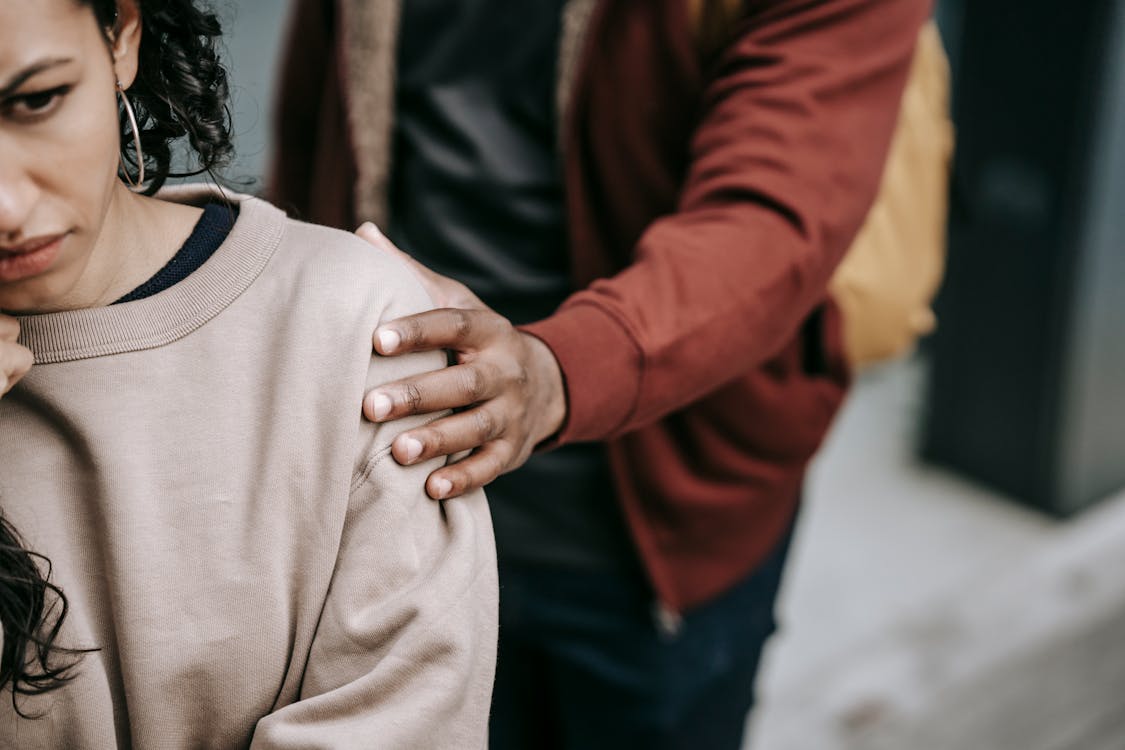In our society, we fixate on all things sexual. From beer commercials to Halloween costumes, we can’t go five steps without tripping over something genital-related. Even celebrities who go into rehab for sex addiction will make the front page.
As a culture, we are obsessed with having sex.
But what about the other side of the scale? In this article, we will explore what is sexual aversion, where it comes from, and what people can do to deal with it.
WHAT IS SEXUAL AVERSION?
In general, it’s when someone feels extreme fear, anxiety, or reluctance to have sex – even towards seeing genitals. However, generalities don’t really help those who suffer from it or people who are in relationships with those that have it.
First, sexual aversion can be divided into two groups…
1. Acquired Aversion – Where the person only feels this way with one person or during a certain point in their life. It can stem from sexual abuse, anxiety disorders, even certain medications that have a side effect of a non-existent libido – just to name a few.
2. Life-Long Aversion – Where someone has experienced trauma (often sexual or incestual) at an early age and the idea of sex has been neurologically tied to danger or shame. This can include being raised in a strict household where sex is considered “dirty” or even with sexual identity issues.
WHAT’S AT THE CORE?
It’s important to remember that any level of sexual aversion rests within anxiety. And no, not the kind you get before you take a test or have to give a speech. It’s the deep, crippling kind that most people can’t understand unless they’ve personally dealt with it.
According to the Mayo Clinic, those that deal with anxiety disorders can also feel these symptoms as well…
- Insomnia or problems sleeping
- Fatigue
- Heart palpitations
- Headaches
- Vomiting, nausea
- Irritable bowel syndrome
- Easily startled
- Muscles aches, tense or clenched muscles
- Twitching or trembling
- Sweating
Now, if you think about what happens during sex – raised heart rate and sweating, for example – it can come uncomfortably close to some sensations people can have with anxiety. The flight or fight reaction can get so bad that they avoid sex altogether, so they can avoid these feelings.
Some other things people might do are…
- Avoid any form of physical contact that could lead to sex (even kissing or holding hands)
- Avoid sex because they have performance issues/fears
- Always feel some level of stress during sex
- Have sex anyways, even though they don’t like it (which can be very mentally damaging and not a healthy solution).
- They might have a panic attack just thinking about a sexual encounter
- Be disgusted by the sight of any genital secretion
- Even vomit or faint if the trauma is deep enough
- Take on jobs or chores that keep them away from their spouse, so they can avoid any chance of sexual hints
- Neglect their appearance so they seem less attractive
- Pretend to be unwell or asleep to avoid the chance of an encounter with their partner.
CONNECTED PROBLEMS TO SEXUAL AVERSION

Having and sexual “deficit” can be looked down upon in many societies. Because of this, so many people don’t seek out any kind of help.
They feel shame and guilt about avoiding their partner – whom they still love, but just don’t want to have sex with. Also, the idea of talking to a partner about this problem might seem impossible. After all, it would be a safe bet that the other person would automatically think it was because of them – that they “weren’t enough” or feel resentment for “not being desired.”
Even those on medication – with a clear reason why they have sexual aversion – might feel bad because they aren’t hot between the sheets.
But what if you couldn’t identify where the avoidance comes from?
What if there’s no trauma in your past or drugs that could cause the issue? It could be maddening. And all of this isn’t even counting what is considered normal for social exchanges. Meaning, there are those strangers that love to hug within minutes of meeting someone. Or the taps on the shoulder, friendly massages, or tickles and cuddles (which can be a form of “touch sensitivity” or “touch aversion”).
With all of this impossible weight resting on someone’s shoulders, it might feel like there’s nothing they can do. But that’s not the case.
POSSIBLE TREATMENTS OR SOLUTIONS
- Talking to your doctor to adjust medications so a little bit of your libido can come back.
- Talking to a therapist – this can include a psychologist or sex therapist
- Trying “desensitization”, where the person is slowly exposed to increasing levels of intimacy (usually to be avoided with those who suffer from sexual trauma).
- Cognitive behavioral therapy or “Integrative” treatments
- Meditation and relaxation – letting the sufferer remove that source of their aversion.
- Something as simple as setting boundaries with your partner or putting a limit on sexual contact
- Avoiding sex altogether until the issue leaves your life
FINAL THOUGHTS ON SEXUAL AVERSION
On a personal note, I’ve dealt with sexual aversion firsthand – from a combination of anxiety disorder and medication issues.
And while I still suffer from bouts of guilt for not being sexually active, I try to remind myself that it’s okay that I’m taking a break from it all. And anyone out there should remember that what they’re feeling is not unusual. There are so many people who can relate to these problems.
And it’s totally okay to seek out help!
Did you find this article useful? You might like these as well…

